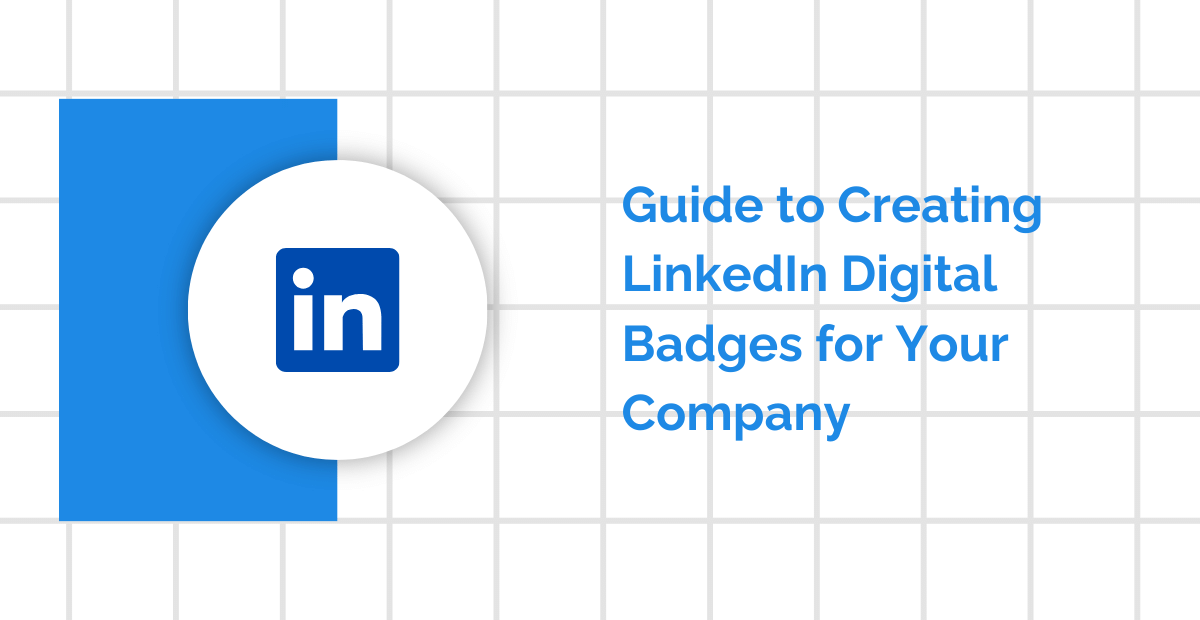It’s not that women don’t want to stay at work—it’s that something keeps pushing them out.
Sometimes it’s the slow burn of being overlooked, like not getting the chance to lead a new project. Other times, it’s the lack of support after returning from a career break or feeling invisible in a meeting room full of louder voices. These aren’t dramatic exits—they’re quiet, subtle, and deeply frustrating, especially when the system seems built for someone else.
And yet, the good news is: organizations can do better—if they know where to start.
Why Are So Many Women Leaving Work?
Let’s be honest—we’ve all seen it.
In college, women are everywhere: topping classes, leading clubs, starting side hustles. They show up, speak up, and lead from the front. But then something strange happens.
Fast forward a few years into the working world—and many of those same women are gone. Some step away for a while. Others leave and don’t come back.
And it’s not because they suddenly lost ambition. It’s because something isn’t working.
According to studies by Lean In, many women downshift or leave their jobs not due to lack of ambition, but because of the workplace systems around them.
So, what’s going on? Why do so many talented women step out of the workforce, even when they want to stay in?
That’s the question we need to ask. And no, it’s not just a “women’s issue.” It’s a workplace issue.
Because when women leave, everyone loses—teams, companies, and entire industries.

Skill Gaps: Not a Lack of Talent, But a Lack of Access
Let’s bust a myth right away.
When people say “women need to upskill,” it often sounds like they’re blaming women for not knowing enough. But that’s not it at all. Most women aren’t falling behind because they’re not smart or capable. They’re falling behind because they’ve been left out of the loop.
Think of it like this:
“Imagine you’re told to run a race—but no one tells you where the starting line is. Others are already halfway down the track. That’s what many women face when it comes to new skills.”
Tech moves fast. So do marketing trends, data tools, and management software. But while the world speeds up, not everyone gets the same chance to catch up.
Women are often juggling more—family duties, caregiving, part-time roles. They’re not always in the right meetings. Or they don’t have access to that internal training course. Or they’re overlooked for that new project that would’ve taught them something valuable.
And slowly, the gap starts to grow.
But here’s the thing: that gap isn’t about ability. It’s about opportunity.
What can organizations do?
-
Offer training that’s actually accessible. Short modules. On-demand videos. Stuff that fits into a busy life.
-
Create mentorship programs. Let women learn from those who’ve been there and done that.
-
Open up stretch roles. Let them try new things—even if they haven’t done it before.
Because when you give someone the tools, confidence often follows.
And when organizations want to be sure the skills are real, validating digital skills through verified credentials offers a simple, trustworthy way to do it.

The Confidence Boost: Digital Credentials That Actually Count
Let’s talk about something a little newer: digital credentials.
No, we’re not talking about a badge for showing up to a webinar. We’re talking about verified, skill-based records that prove what you actually know.
Think of them like modern-day Girl Scout badges—but for your career.
So, why do digital credentials matter for women at work?
Because proof matters. Especially when confidence gets shaky.
A lot of women struggle with “imposter syndrome.” Even when they’re qualified, they still question themselves. That feeling gets even worse after a career break—like after maternity leave or caregiving.
And while the term “imposter syndrome” is often thrown around, some argue it’s the environment—not the individual—that needs fixing.
But here’s where digital credentials come in. They:
-
Show your skills clearly and quickly.
-
Don’t care how or where you learned. College, bootcamp, job experience—it’s all valid.
-
Travel with you. New company? New industry? The credential still proves what you know.
“If she’s done the work, shouldn’t she have a way to show it?”
And the best part? These aren’t vague titles or padded résumés. They’re verified. Issued by real organizations. Often tied to clear outcomes.
How can companies use digital credentials to help?
-
Reward learning—no matter how small. Recognize micro-skills.
-
Offer stackable credentials—so women can build a clear path over time.
-
Make internal promotions easier to track. Credentials can show who’s ready for more.
In fact, real-world results show that digital credentials can simplify talent decisions — this HR case study breaks down how credentials helped streamline hiring, boost transparency, and build internal trust.
Because sometimes, the difference between “I can’t” and “I can” is seeing a real, digital stamp that says “You did.”
Real-World Hurdles: It’s Not Just About Skill—It’s Also About Space
Let’s take a step back.
Skills are important. Confidence matters. But even the smartest, most credentialed woman won’t stay in a place that’s pushing her out.
And no—it’s not always blatant.
Sometimes it’s a calendar full of late meetings, even when you’ve asked to leave by 5. Sometimes it’s being talked over in a meeting. Or being the only woman on the team. Sometimes it’s unpaid emotional labor—mentoring others, smoothing conflicts, organizing birthday cakes.
“My friend Sarah left her job—not because she couldn’t keep up—but because every meeting was scheduled after daycare hours.”
She tried to ask. She tried to manage. But no one budged. So she walked away.
This is the quiet quitting no one talks about. The slow fade. The “maybe I just don’t belong here.”
What real support looks like:
-
Flexible schedules. Let people work when they’re most effective.
-
Remote options. Don’t make presence the only measure of performance.
-
Clear policies. Make maternity leave, sick leave, and re-entry plans easy to understand.
-
Bias training that actually works. Not a checkbox. A change in culture.
And here’s something powerful: internal communities.
Slack channels. Monthly meetups. Mentorship circles. When women feel connected to others who understand their journey, they stay longer. They speak up more. They grow faster.
When Support Is Visible, Women Stay—And Thrive
Let’s wrap this into a simple idea:
When organizations:
-
Help women learn
-
Show women what they’ve learned
-
And fix what gets in the way of applying it
Women stay.
And not just stay—they thrive.
They rise into leadership. They build new products. They lead teams with empathy and vision.
But none of that happens in a vacuum. It happens because someone looked at the system and said: “We can make this better.”
Research from McKinsey & Company shows that companies with strong support for women also perform better overall.
It’s not always dramatic. It’s often small:
-
A short course that leads to a credential
-
A mentor who listens
-
A boss who says “take the time you need”
These moments add up. And they send a message: “You belong here.”
To truly support women, companies must also work toward fairness across the board. Building an unbiased workforce starts with recognizing skills—not resumes—and creating space for everyone to succeed.
A Little Help Goes a Long Way
Sometimes, it’s not about grand gestures—it’s about consistent, thoughtful action. Helping women stay at work isn’t only a matter of fairness; it’s also smart for teams, culture, and long-term growth. When women feel supported, they bring their full potential to the table—ideas, leadership, creativity, and collaboration. And really, isn’t that what every organization wants?
Support doesn’t have to be complicated. It can look like mentorship, flexibility, or even something as practical as making credentials portable and trustworthy. When employers take the time to invest in tools that remove friction, like digital credentials, they send a clear message: you belong here. In the end, retention is about respect—and small efforts, done right, can build a workplace worth staying for.
Let’s be real.
Not every company is going to overhaul their culture overnight. Not every manager is going to get it right. And not every woman is going to want the same kind of support.
But here’s the truth: even a little help makes a big difference.
“Sometimes, staying just depends on whether someone made room at the table.”
And that “someone”? It could be you. Whether you’re a university admin helping a student get their first credential, a hiring manager giving someone a shot, or a coworker pushing for flexible hours—you play a part.
Because supporting women at work isn’t about flashy programs or big speeches.
It’s about showing up, stepping up, and asking—“What do you need to stay?”
5 Ways Organizations Can Help Women Stay at Work
Let’s be real: keeping women in the workforce isn’t about free coffee or flashy diversity slogans.
It’s about building a culture where women aren’t just welcomed—they’re wanted, supported, and set up to grow. That means listening more, assuming less, and making practical changes that don’t feel like afterthoughts.
Below are five ways organizations can actually make that happen—not just on paper, but in practice.
These aren’t complex fixes, but they do take commitment, the right tools, and a willingness to shift old habits.
1. Close the Skills Confidence Gap with Learning Opportunities
Many women leave not because they lack talent, but because they start to doubt it. Life transitions—like maternity leave, caregiving, or career breaks—can quietly chip away at confidence.
Offering clear paths to reskill or upskill can change that story. And when those new skills are backed by verifiable credentials? Even better—because now, they can prove their knowledge without needing to explain or justify it.
2. Make Workplaces Truly Flexible (Not Just in Policy)
It’s one thing to say you’re flexible. It’s another to show it.
For many women, especially working mothers or caregivers, flexibility isn’t about convenience—it’s survival. Let them start earlier, work remotely, or shift hours.
When organizations trust women to get the job done, they’re far more likely to stick around and give it their best.
3. Use Verifiable Credentials to Recognize Nonlinear Career Paths
Not every career path looks like a straight ladder—and that’s okay.
Women often take alternate routes, whether by choice or circumstance. Verifiable credentials can help translate those routes into recognized value, showing what they know, not just where they’ve been.
Think of it like a portable, trusted proof of learning—a tool that helps women re-enter or pivot without being penalized for gaps.
4. Create Safe Spaces to Speak Up—and Actually Listen
It sounds basic, but it’s rare: just letting women speak freely without fear of being dismissed, interrupted, or sidelined.
Whether it’s during team meetings, feedback sessions, or decision-making conversations, women need to know their voices matter. Beyond policy, this requires leaders who model inclusive behavior and act on what they hear. It’s not just about hearing women—it’s about believing them.
5. Champion Women Publicly—and Promote Them Privately
Recognition matters. So does mentorship.
When leaders advocate for women, give them credit, and support their promotions behind closed doors, it sends a clear message: we see you, and we’re investing in you.
Combine that with access to certifications and credentials that prove their strengths? Now you’re not just retaining women—you’re helping them rise.

A Note to Students and Admins
If you’re reading this from a university setting—maybe you’re in the registrar’s office, or you’re a student wondering how the future looks—remember this:
The way we support women doesn’t start at the office. It starts here.
In how we talk about leadership. In how we track learning. In how we recognize talent—on paper, and beyond.
So, whether you’re setting up credential programs or helping a friend believe in herself again—know that you’re helping shape a workplace where more women stay.
And that’s not just good for women.
It’s good for all of us.
Imagine if every skill learned—during a class, internship, or even a volunteer project—was recognized, verified, and carried forward as proof.
That’s the power of digital credentials, and it’s something universities and students alike can benefit from.
So whether you’re building a career or shaping one, remember: inclusion isn’t just a checkbox. It’s a mindset—and it begins with how we see and support each other right now.
Even beyond education, companies across sectors are realizing the need for digital credentials in busines—because in today’s world, proving skills matters more than ever.
Conclusion
Women aren’t walking away from work because they’re less ambitious. They’re walking away because the environment often asks them to shrink, stretch, or juggle too much just to stay.
It’s not about ability—it’s about access, acknowledgment, and support. The sooner we stop viewing this as a “women’s issue” and start treating it as a workplace issue, the closer we get to real change.
Organizations have an important role to play here, and the good news is—it’s not rocket science.
From offering flexible work options to providing upskilling programs backed by verifiable digital credentials, the right tools can go a long way. It’s also about fostering a culture where women feel seen, heard, and promoted—not just retained.
A small shift in mindset can ripple out into long-term loyalty and stronger teams.
If you’re curious about how digital credentials can support these efforts, CertifyMe might be worth a look. It helps organizations issue secure, verifiable records that boost confidence in women’s skills—especially during transitions, like returning to work or upskilling mid-career. It’s simple to use and helps women showcase what they know, without extra red tape.
Plus, using digital credentials doesn’t just support your workforce—it strengthens your employer brand too. Explore how they fit into your marketing strategy and show the world that your organization values real, visible skills.
Want to see how it works? Book a demo call and explore how CertifyMe can fit into your strategy.

 Author :
Author : 




